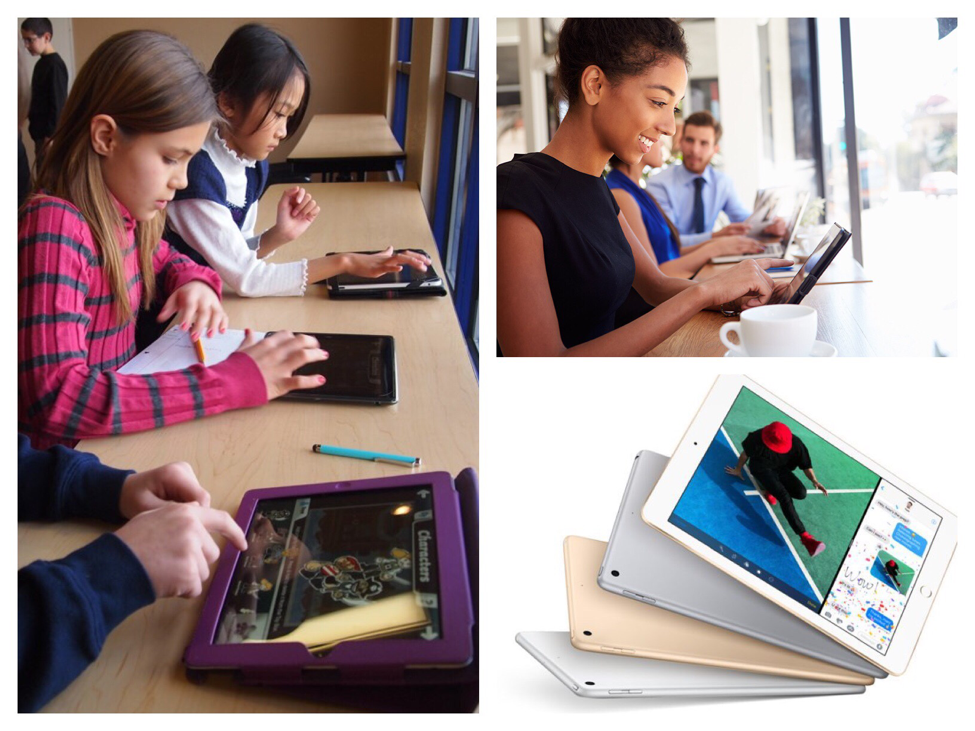Conventional wisdom says that if you expose kids to your operating system during their formative years, that you lock them into your ecosystem and you have a customer for life. That is true to an extent but kids get pulled into an even stronger gravitational force later on, their workplace.
Education isn’t the only institution with the capacity to assimilate people into a particular ecosystem. It may not even be the most important. You could make a strong case that crown actually belongs to the workplace. During the 90’s, when everyone was buying their first computers they weighed their options between IBM clones and Mac. Mac was part of the equation because that’s what most schools used. And yet, most of these students eventually ended up using Windows.
Where I grew up in Michigan all the schools were 100% Apple operations. We all played history games, practiced our times tables, and played games on Apple computers. Later we all went to college, got jobs in American industry, and bought Windows PCs.
What happened? When it came time to buy our first computer we mostly all chose Windows PCs for three main reasons.
- The kids who went on to college and white collar jobs were issued Windows PCs at work.
- The kids who didn’t go to college chose Windows PCs because they were cheaper.
- Software selection was much broader in the Windows ecosystem.
The part that I think is greatly underestimated by most people, but not Apple, is point #1. What you use at work has a huge impact on what many people will buy. Especially if you’re the non-technical type. Further most big corporations have contracts written up that allow them to extend their PC discounts to their employees. In some cases, these discounted PC purchases are strongly pushed by the corporation onto its employees in order to achieve some kind of end-of-year rebate if they attain certain purchase targets.
But the real kicker is this. In the past, Corporate worker bees wanted the flexibility of using their home machine to get some work done. Back in the 80’s and 90’s when PCs were still novel and laptops were not as prevalent, people wanted a compatible machine at home that they could use in a pinch. Most white-collar workers, whether they used Macs in school or not, ended up going with Windows because they could save files to disk at work and pop it into their home machine later after dinner if they needed to.
At this point some would make the argument that things are different now. That using an OS requires you to setup an account and invest in apps. Somehow this account will anchor you to Google or Apple forever. I don’t think so.
Most people still value simplicity. If their workplace is on Windows, they’d prefer to be on Windows at home. But what would happen if iPads made a big push into corporate? You’d have the same “enterprise effect” working in reverse, pushing people to iOS, away from Windows.
- One segment will purchase iPads simply because “I get a special discount and if it’s good enough for my work, it’s good enough for me”
- Another segment will see the compatibility advantages of going all-in on Apple. If you have an iPad at home, you may not have to bring your work iPad home to finish a project later in the evening. You won’t even need a disk or USB stick, it’ll just be there.
- iOS, unlike Mac, is not at a software disadvantage to Windows. In fact, most people have a vague perception that iOS is where all the best software is these days. The iOS App Store is a vibrant advantage.
I’m not saying that the education market is not important. It is. Back in the 90s, the reason many purchasers even considered Macs as opposed to just plunging headlong into Windows was because they were exposed to Macs in school. Apple’s education involvement allowed them to be a part of the decision making process. I’m sure if Apple had their druthers, they’d still like to own education.
But if you do a cold, hard cost-to-benefit analysis, the numbers probably tell you that it’s better to prioritize the enterprise market higher than education. So it makes sense that iOS is advancing more quickly on the enterprise front than it is in education.
I think the iPads position relative to enterprise and education can be summed up with a picture of how political liberals look at education. Enterprise is kind of like the University system. It’s better to own the formative grade school years, but if you don’t, the university will get the last word later.
So Google can pump all the money they want into below-margin education sales, Apple will get those sales back later in enterprise. At a high margin.



 RSS Feed
RSS Feed